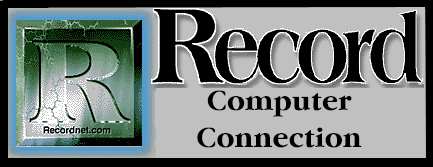

"Yo ho ho and a bottle of rum!", were the cries of swashbucklers during the 15th and 16th centuries as they terrorized seas from the Mediterranean to the Caribbean, threatening the burgeoning shipping industry. The buccaneer likes of Red Beard and the Barbary pirates are much less obvious today, though the danger to one of the fastest growing industries in America is equally dire.
Software piracy is the single largest threat to an industry that contributed $36.7 billion to the U.S. economy in 1992. In the last ten years this industry has grown at a rate of 269 percent and maintains a 75 percent market share worldwide. In 1993, however, the software industry lost $12.8 billion in revenue to thieves who duplicated, distributed or used programs illegally.
Software theft poses an overwhelming problem because it is so easy to pirate. An original program that cost hundreds of thousands of dollars and countless hours to develop can be copied for pennies with a few keystrokes. Software developers have attempted in the past to build "locks" into their programs, but these proved to be too difficult for the legitimate end-user and such techniques have been generally abandoned. The federal copyright law states quite simply that it is illegal to make a copy of software for any reason, except as a back-up, without permission from the copyright holder.
Modern-day buccaneers come in many forms ranging from counterfeiters who illegally duplicate and distribute software for profit to individuals who simply share software among friends. In between are hardware dealers who pre-load unauthorized copies of software on hard disks to entice buyers and bulletin board systems that download software without permission via modem to users.
Internationally, piracy is even more rampant than it is domestically. According the Business Software Alliance, the U.S. boasts a 65 percent use of legal software versus a 35 percent piracy rate. Compare these figures to Indonesia, Malaysia, Peru, Pakistan, Kuwait who each exceed a 97 percent piracy rate. Japan has piracy rate of 80 percent and the People's Republic of China uses 94 percent pirated software and only 6 percent is legal.
Software publishers and developers are fighting back and vigorously pursuing enforcement efforts both domestically and abroad. The Software Publishers Association represents 1,100 companies and in 1993 collected $3.6 million in settlements from anti-piracy efforts. The Business Software Alliance represents only a handful of companies in comparison, but it is an impressive list that includes Microsoft, Apple, Lotus, Novell, WordPerfect, and Aldus. Since 1988, BSA has filed more than 500 lawsuits worldwide and collected $230 million in settlements and fines.
If you are an individual or small business, it is unlikely that the piracy police will show up on your doorstep. Since resources are limited, investigation and enforcement efforts have been historically targeted towards institutional offenders, although BSA has filed legal actions against companies with as few as 25 employees.
Regardless if you are an individual or an institution, copying or sharing licensed software amounts to stealing. Participating in piracy takes billions of dollars away from the industry and the consumer will bear the eventual burden as software prices rise to fight off thieves. In addition pirated software leads to viruses, lack of technical support and an inability to upgrade.
In order to insure compliance with the law, buy software from legitimate software retailers only. Be sure your software comes sealed, with a licensing agreement and original manuals. Always send in your product registration card.
If your software came pre-loaded on your hard-disk, check to be sure that you have licensing agreements, and original manuals for all software. Only if a special agreement exists between the hardware and software manufacturer should you have anything but original software and manuals.
If you are a small business, you should have a software management program in place to insure that all running software copies are legitimate and licensed according to the manufacturer. Beware the disgruntled employee! This is the largest source of piracy complaints against businesses. You can contact the Business Software Alliance or the Software Publishers Association for guidelines in setting up such programs.
A healthy dose of the old-fashioned "honor system" is really the first step towards compliance and would surely take some wind out the those buccaneer sails.
Software Publishers Association 1730 M St. N.W. Suite 700 Washington, DC 20036 Hotline:1-800-388-7478